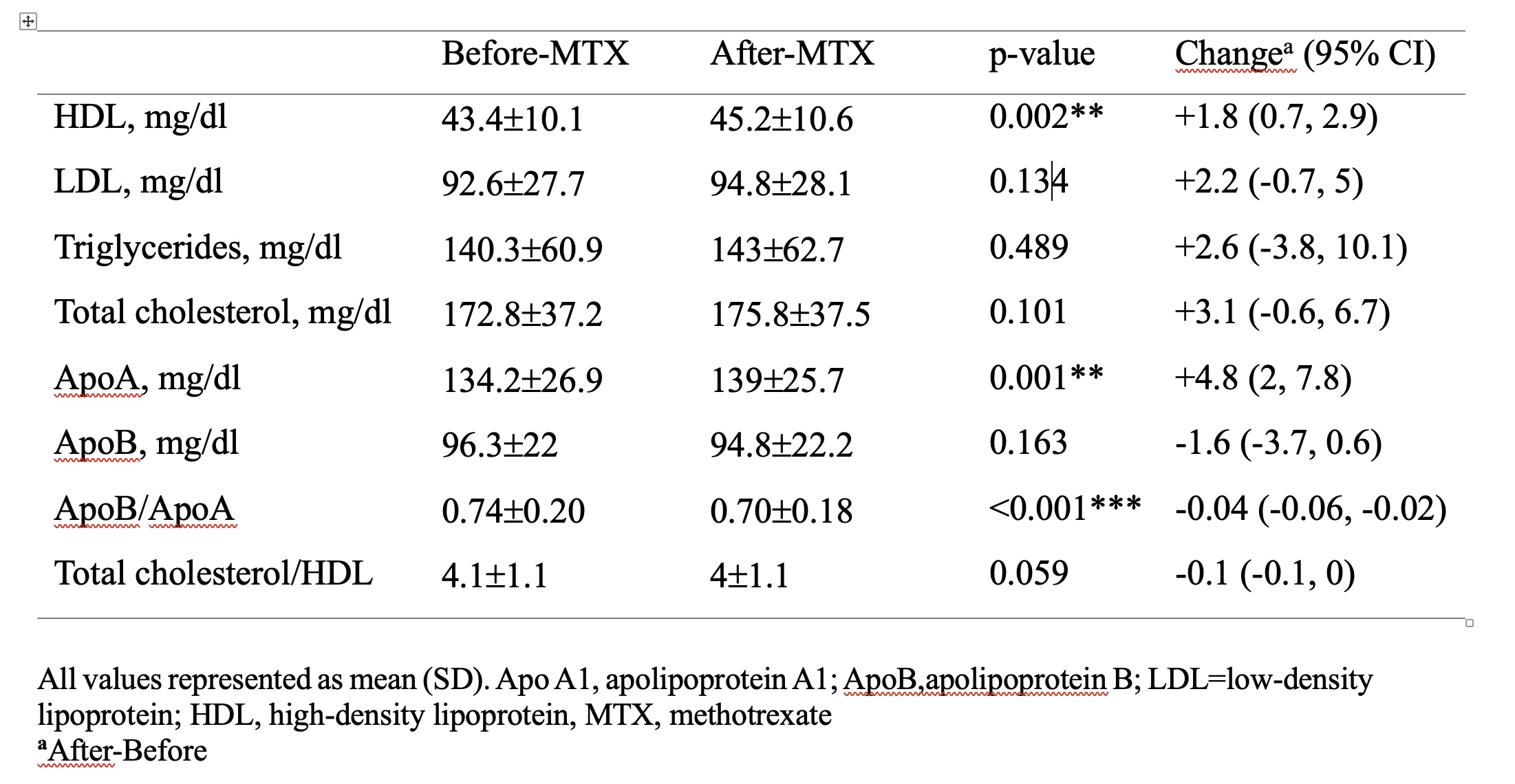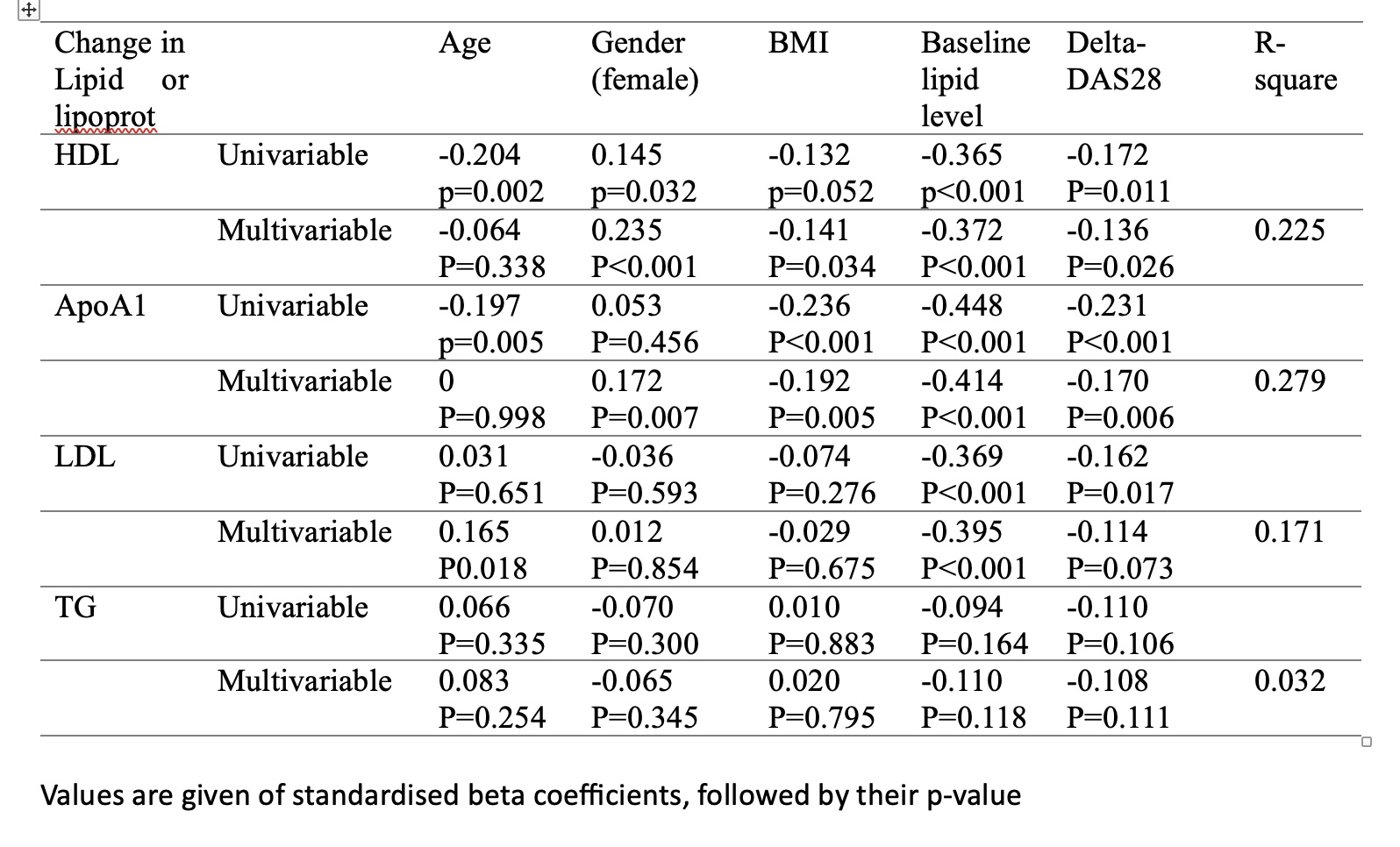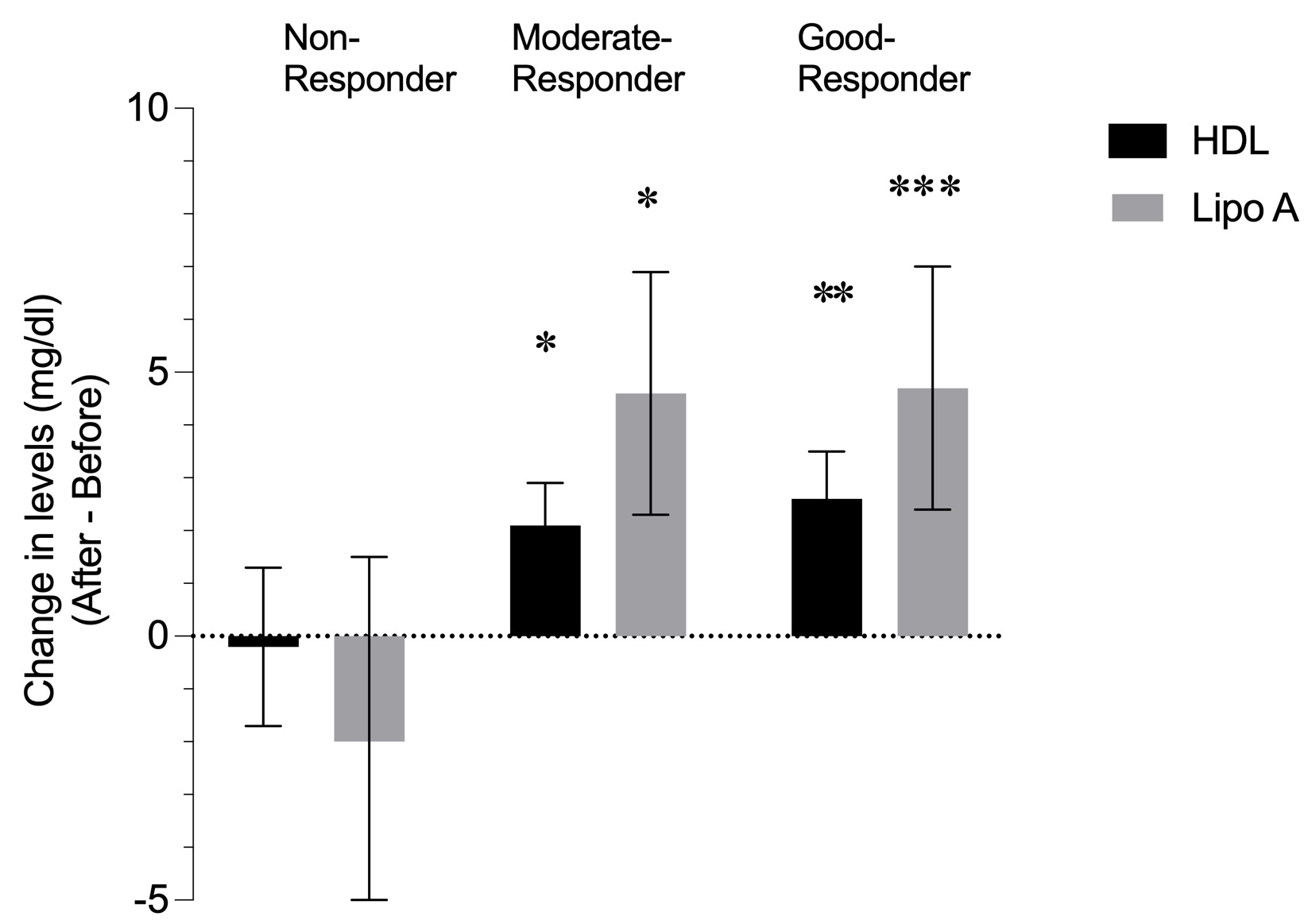Session Information
Date: Sunday, November 17, 2024
Title: RA – Treatment Poster II
Session Type: Poster Session B
Session Time: 10:30AM-12:30PM
Background/Purpose: Methotrexate improves cardiovascular risk in autoimmune inflammatory diseases like RA, and has been shown to suppress inflammation and increase lipid levels. However, it is unclear whether changes in lipids correspond with improvement in disease activity and whether they occur only in responders.
Methods: This study included patients of a single-center in two RCTs, MEIRA and SMART. Both of these enrolled RA patients (ACR/EULAR 2010), with active disease (SJC≥2 and TJC≥2, SJC≥2 and TJC≥4), who were not on DMARDs. In both, patients were treated with oral MTX monotherapy (25mg per week) for 16 weeks. Lipid profile was performed on stored serum (stored at -80 °C) included levels of LDL, HDL, Triglycerides, ApoA1 and ApoB. Pro-atherosclerotic indices ApoB/ApoA1 and total cholesterol/HDL were calculated. Comparison between pre-and post-treatment was done using the paired t-test. This was repeated in subgroups as per EULAR response. Univariable and multivariable linear regression was done to find predictors for change in lipid levels.
Results: 219 patients (192 females, 87%) were included. Mean age was 41.6±9.6 years and disease duration 2±1.5 years; 199 (90%) were RF positive and 183 (of 202, 90%) were CCP positive. BMI was 25.2±5 Kg/m2, and comorbidities included diabetes mellitus in 7 (3%), hypertension in 24 (11%) and hypothyroidism in 18 (8.2%), but no case of CAD. Only 6 were on low-dose glucocorticoids. DAS28-CRP was 5.5±0.9 at baseline, and reduced to 3.8±1.2 after methotrexate treatment (p< 0.001). HDL levels showed a significant increase after methotrexate treatment (+1.8 mg/dl, p=0.002), but there were no significant changes in LDL or triglycerides. There was a significant increase in ApoA1 (+4.8 mg/dl, p=0.001), but no significant change in ApoB. (Table 1) There was decline (improvement) in ApoB/ApoA1 after treatment (p< 0.001). A significant negative correlation, although small, was found between change in DAS28 with change in HDL (r=-0.172, p=0.011), change in LDL (r=-0.162, p=0.017) and change in ApoA (r=-0.231, p< 0.001). On classifying as per EULAR response criteria, there was significant increase in EULAR moderate (+2.1, p=0.01) and good responders (+2.6, p=0.007) after MTX treatment but not in non-responders. (Figure 1) A similar trend was seen for ApoA. On regression, gender, BMI, baseline lipid and change in DAS28CRP were all significant predictors of change in HDL and ApoA1. (Table 2)
Conclusion: Methotrexate monotherapy leads to modest improvement in lipid profile, with rise in HDL and ApoA1 levels, and reducing ApoB/ApoA1. Change in lipids was limited to EULAR responders (moderate or good) and not found in non-responders. This is the first study to show that improvement in lipids is contingent upon control (response) of disease activity.
To cite this abstract in AMA style:
Dhir V, Prasad C, Jain S, naidu s, Sharma A, Sharma S, Verma I, jain s. The Effect of Methotrexate on Lipid and Apolipoprotein Levels in RA Goes Hand-in-hand with EULAR Response [abstract]. Arthritis Rheumatol. 2024; 76 (suppl 9). https://acrabstracts.org/abstract/the-effect-of-methotrexate-on-lipid-and-apolipoprotein-levels-in-ra-goes-hand-in-hand-with-eular-response/. Accessed .« Back to ACR Convergence 2024
ACR Meeting Abstracts - https://acrabstracts.org/abstract/the-effect-of-methotrexate-on-lipid-and-apolipoprotein-levels-in-ra-goes-hand-in-hand-with-eular-response/



